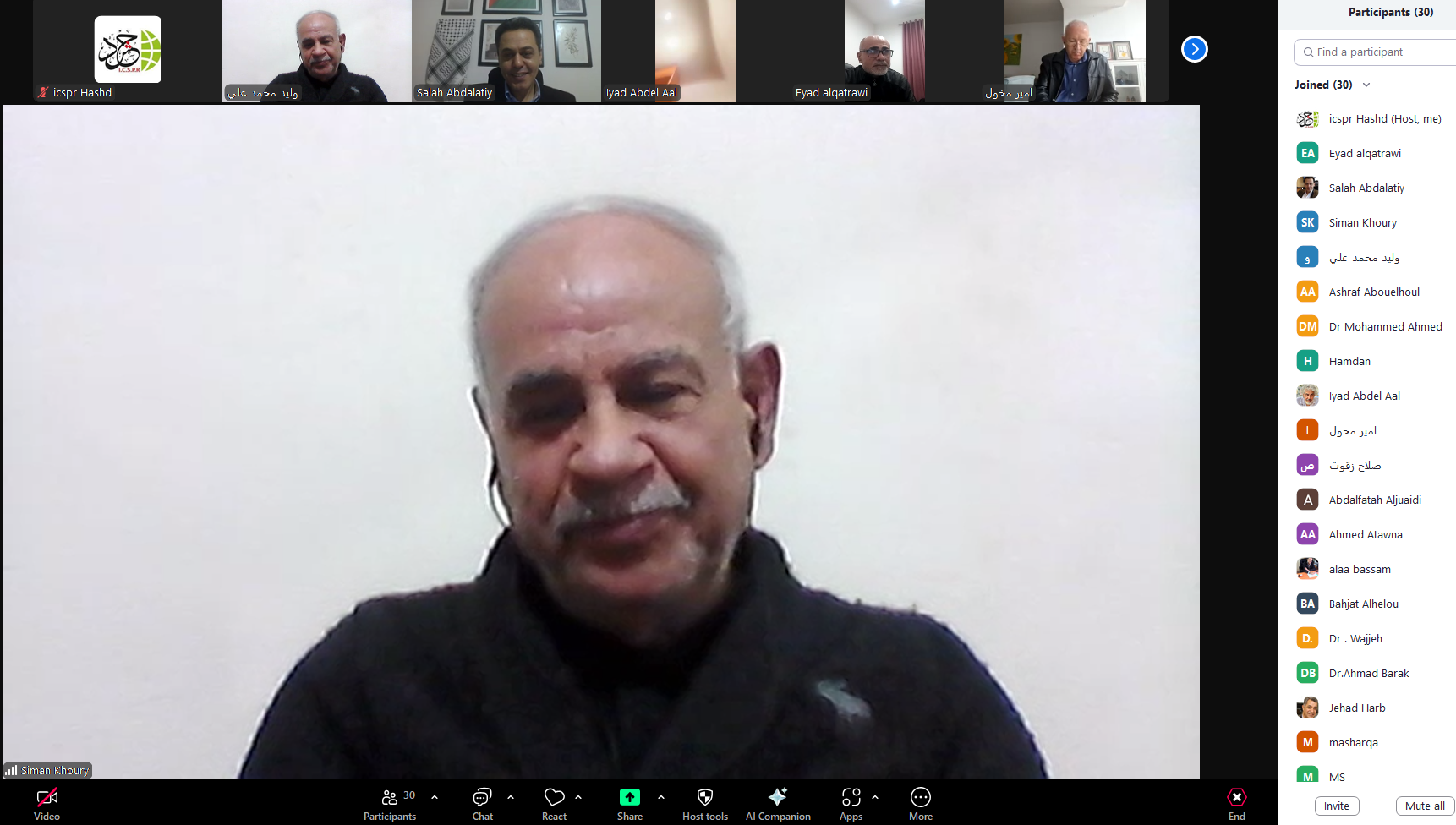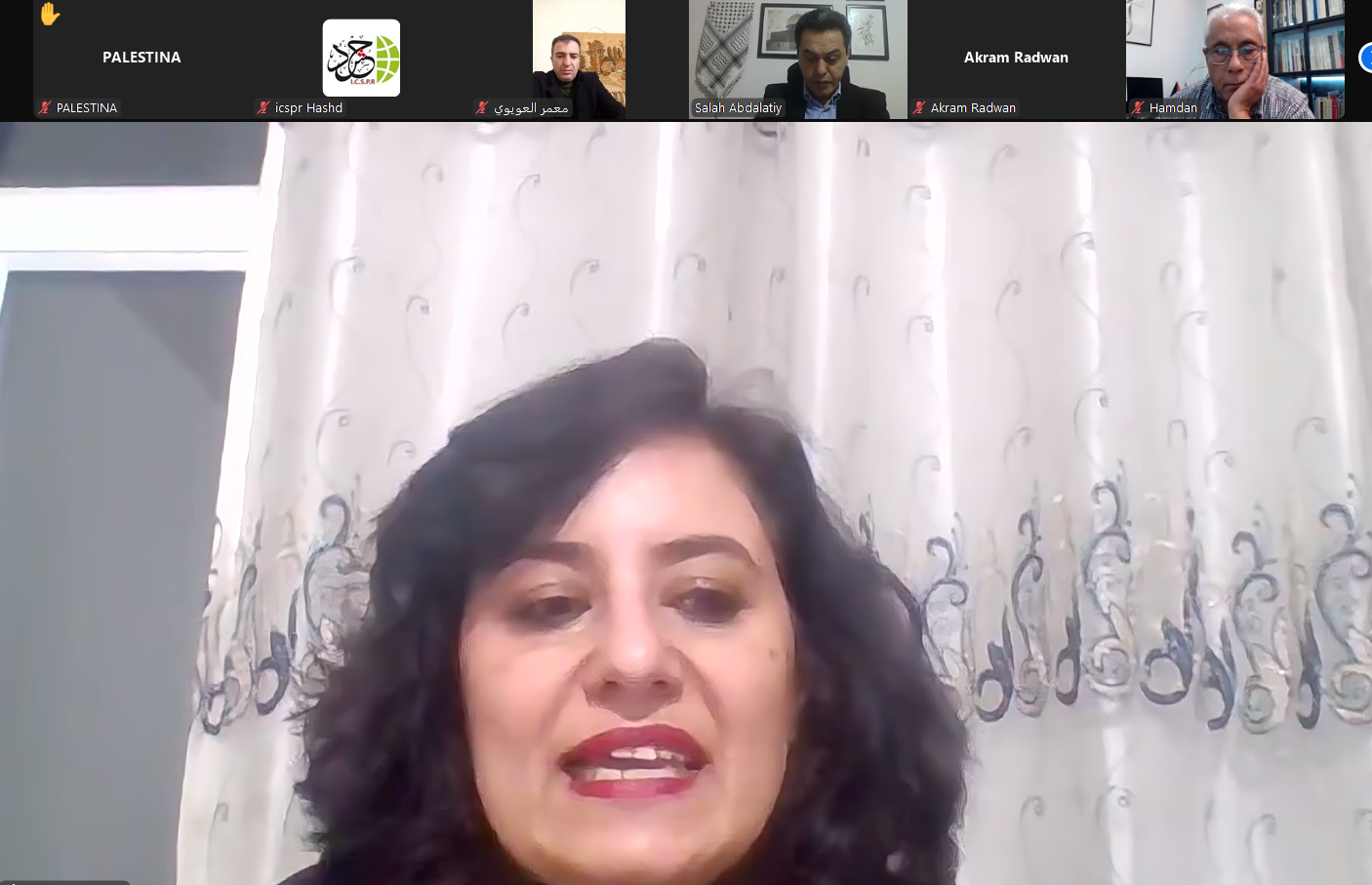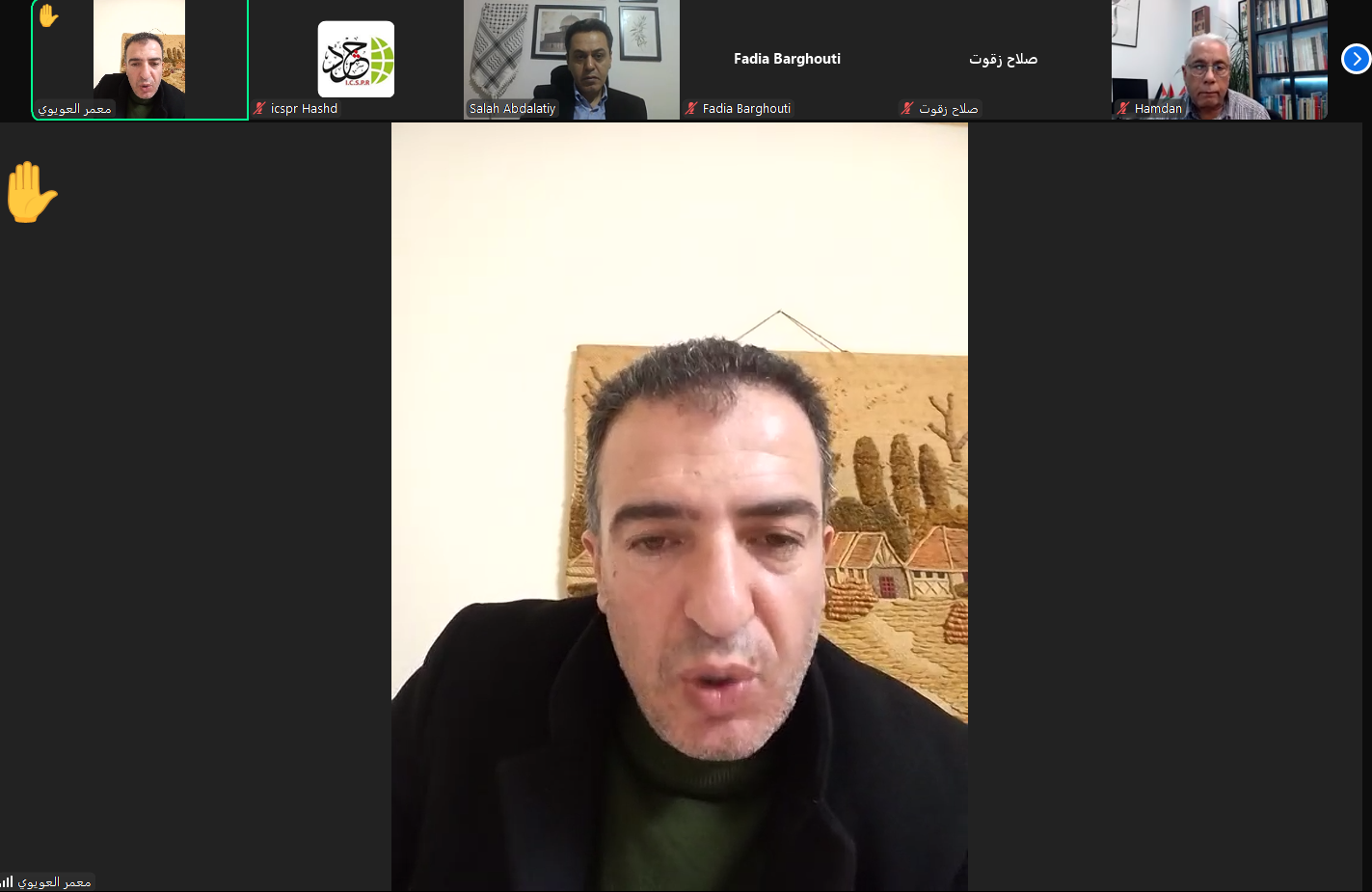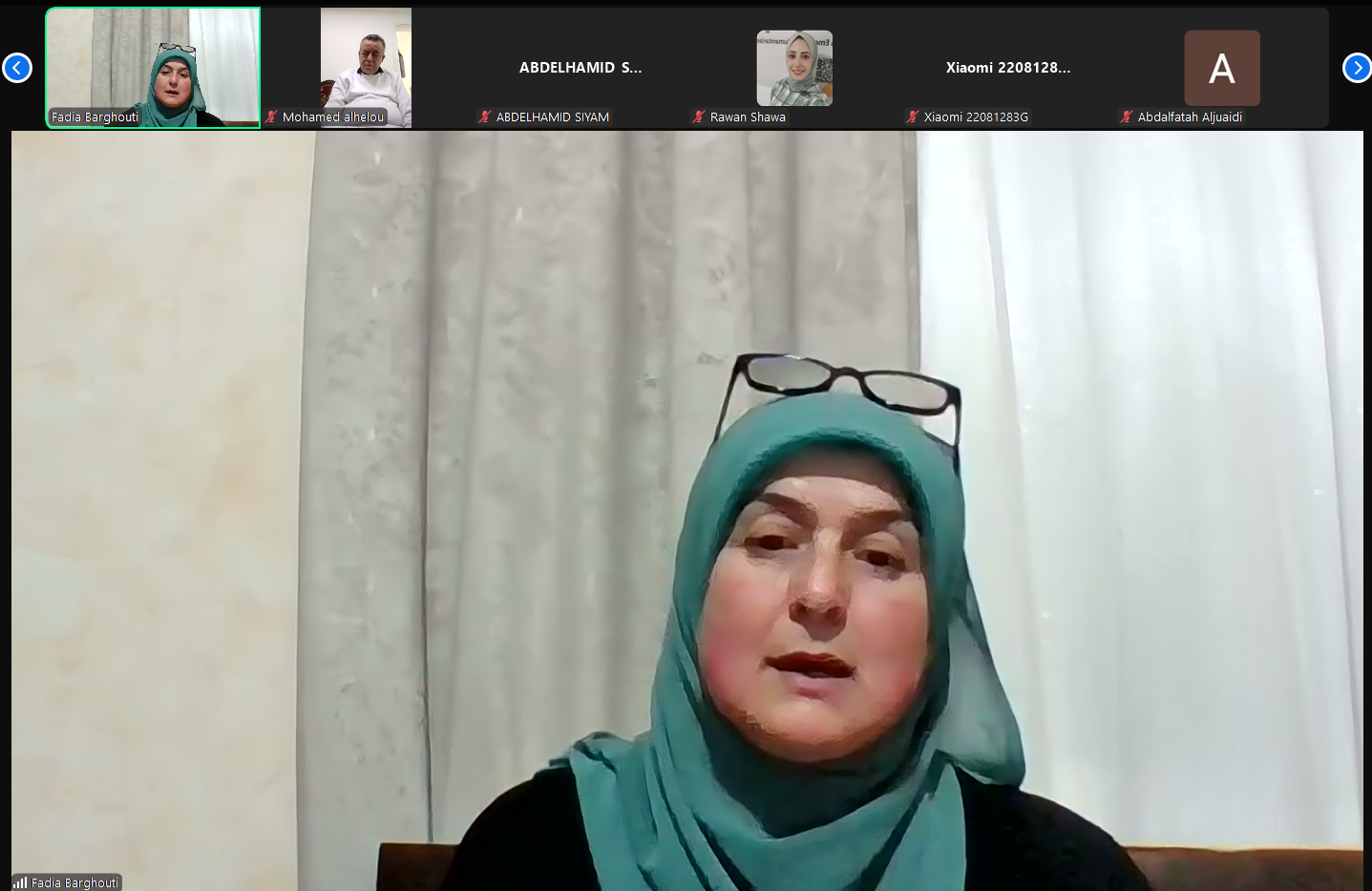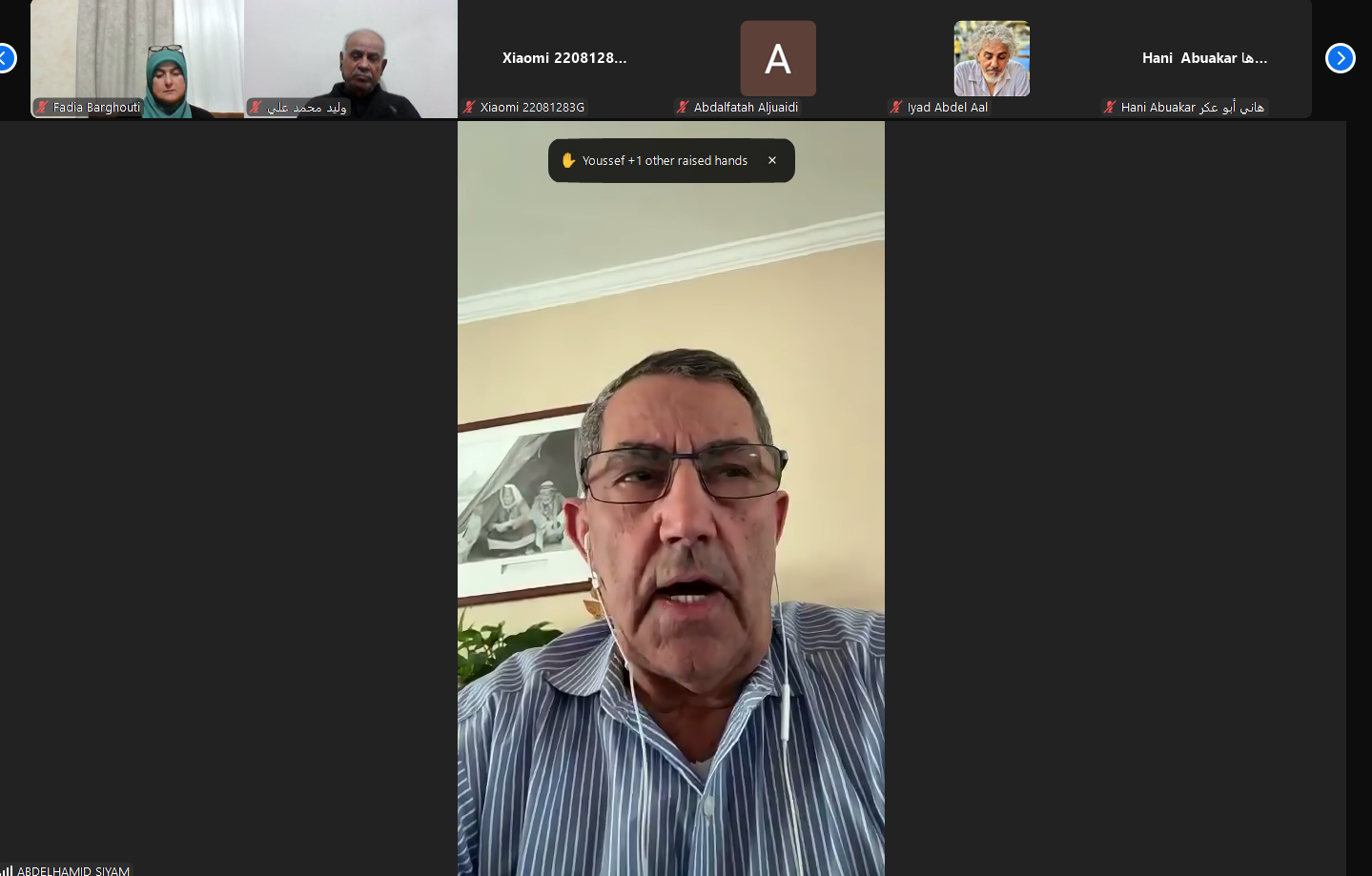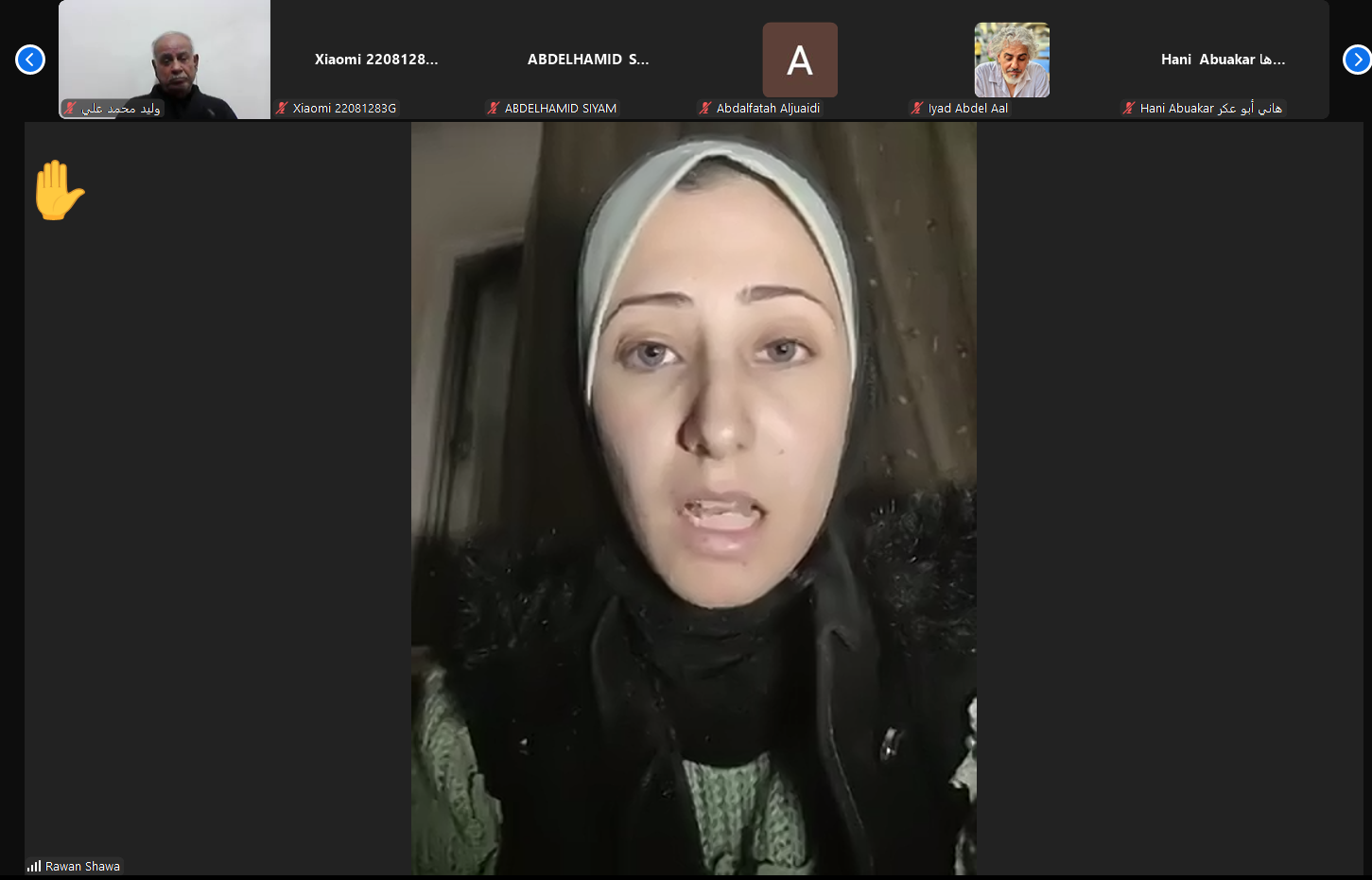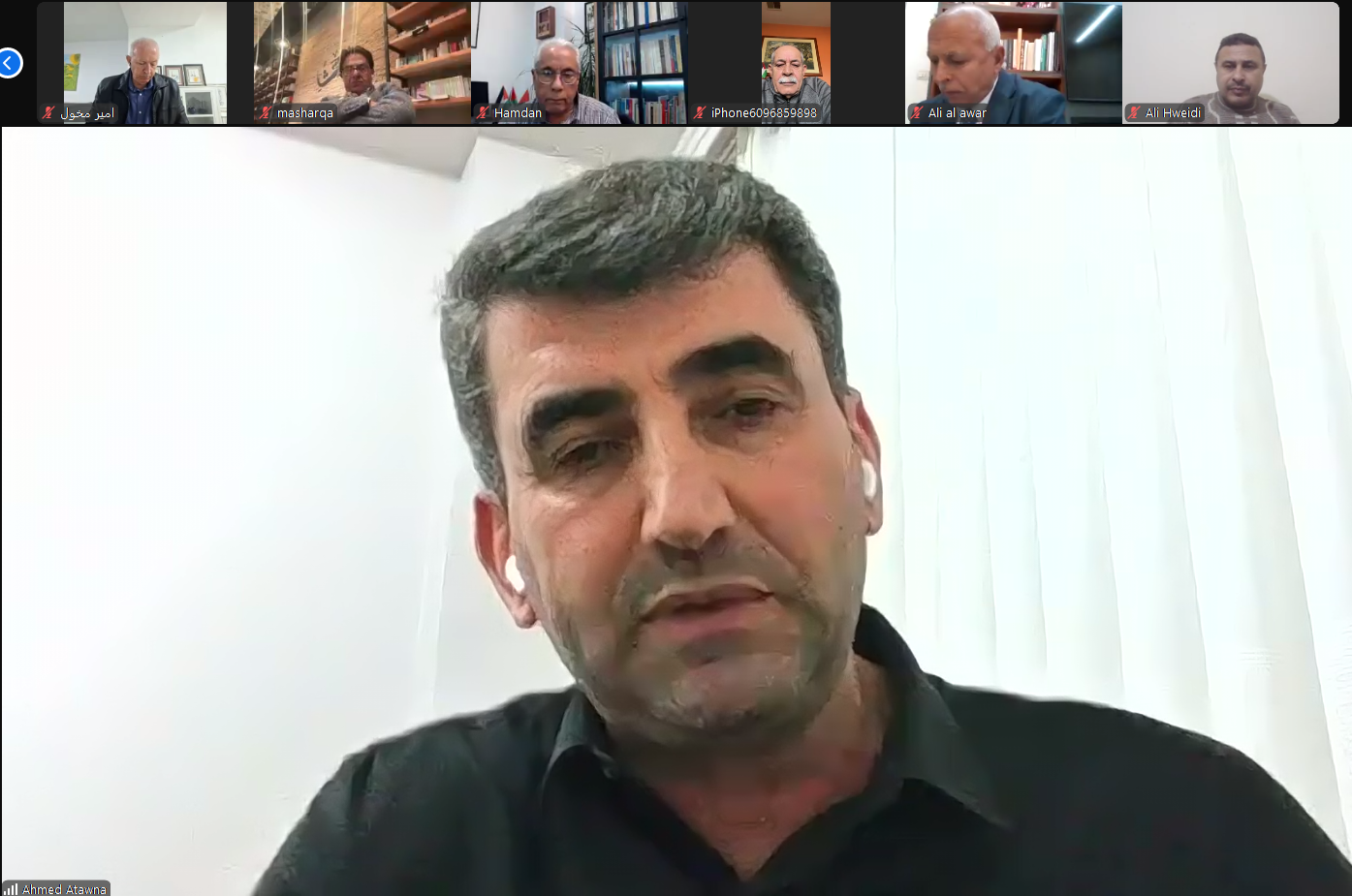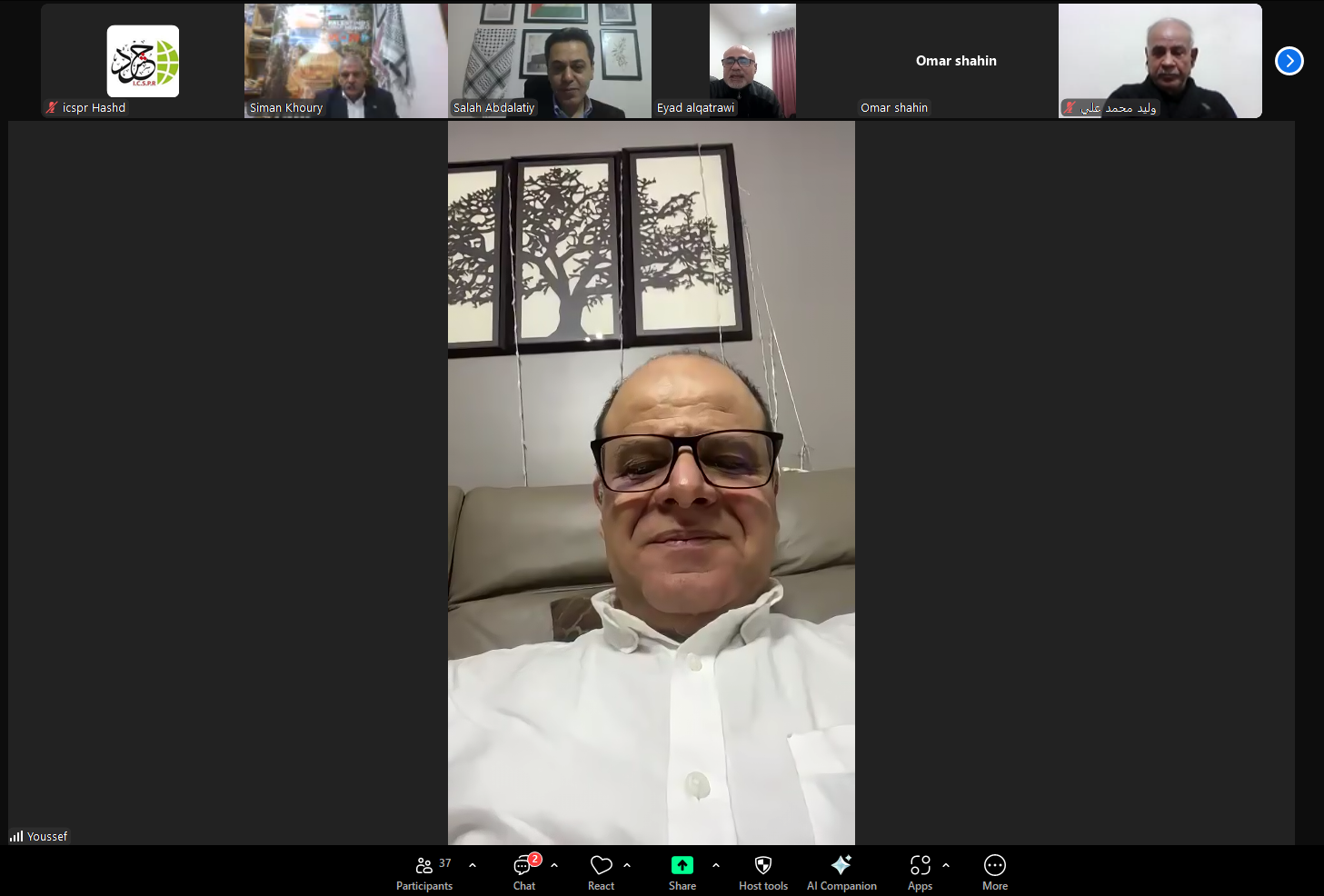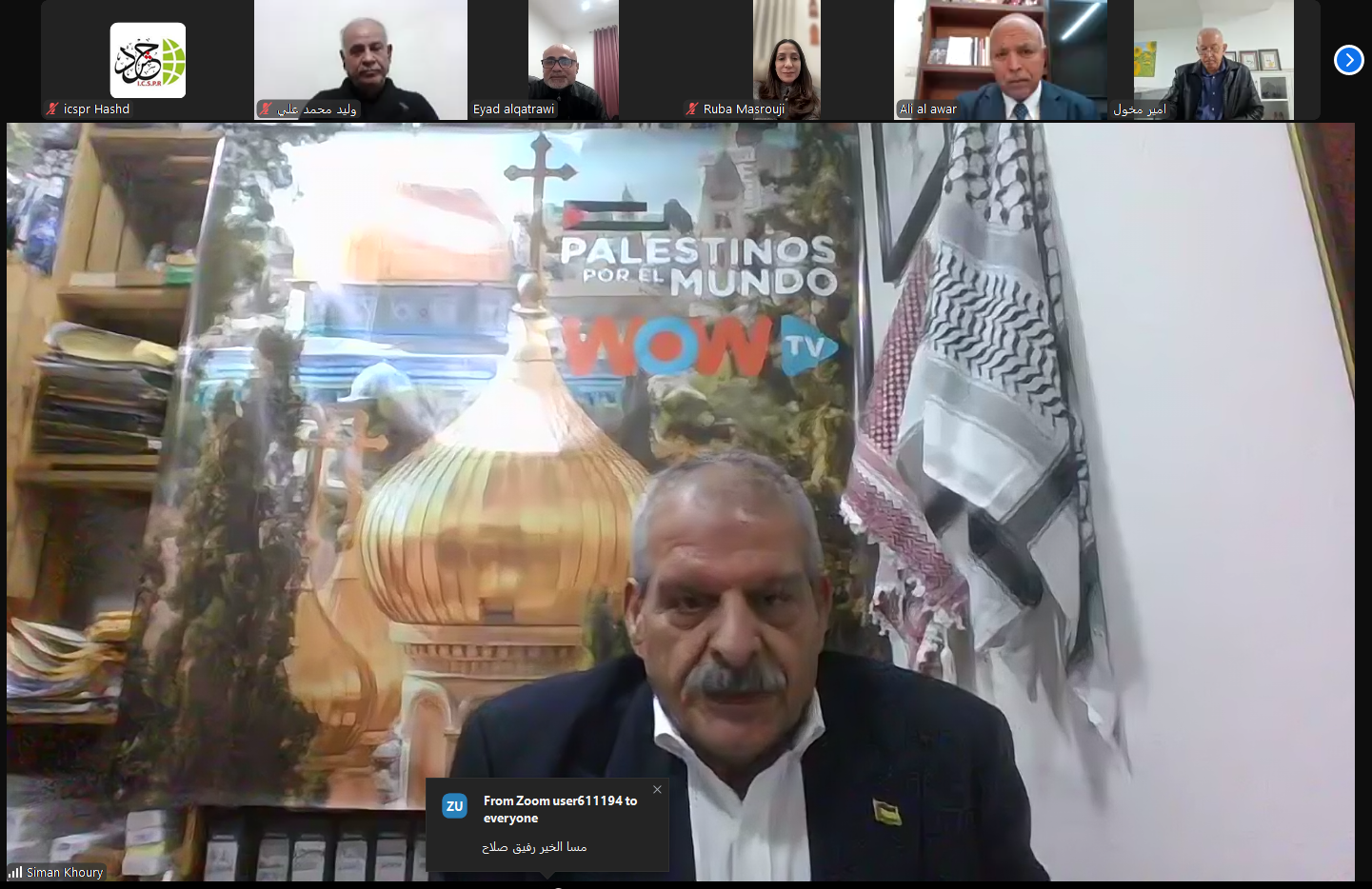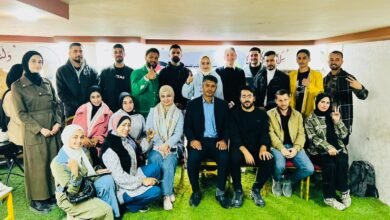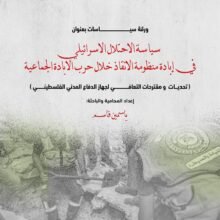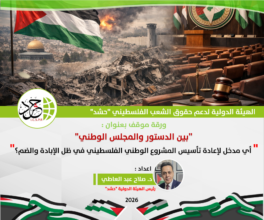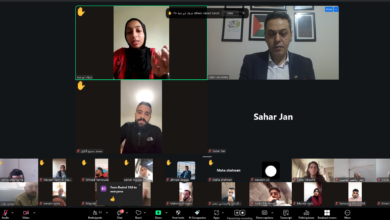
During a Dialogue Forum by ICSPR Participants Emphasize the Need to End the Genocide, Strengthen Resilience in Gaza, and Agree on a Plan for Managing the Transitional Phase and Protecting National Interests
Date: 20 Dec 2024
Press News
During a Dialogue Forum by ICSPR: Participants Emphasize the Need to End the Genocide, Strengthen Resilience in Gaza, and Agree on a Plan for Managing the Transitional Phase and Protecting National Interests
Dozens of representatives from factions, civil society, and Palestinian and Arab experts participating in the dialogue forum organized by the International Commission to Support Palestinian Rights (ICSPR) emphasized:
- The need to work towards ending the genocide and enhancing humanitarian response to strengthen the resilience of people in Gaza, ensuring recovery of service sectors and reconstruction.
- National consensus on a plan for managing the transitional phase, including the establishment of a local service administration to prevent a vacuum until agreement is reached on a national competency government with full powers.
- Protection of national interests in light of regional and international changes, and advancing to meet the humanitarian and national challenges as Palestinian priorities.
This was discussed during the forum on “The Reality and Future of Gaza in the Context of Genocide, Ongoing Division, and Regional Changes,” organized by ICSPR yesterday via Zoom, with the participation of over 60 representatives from political forces, civil society organizations, activists, human rights defenders, experts, and researchers from all Palestinian sectors, especially Gaza, as well as several Arab experts and international organizations’ representatives.
The forum began with a welcome from Dr. Salah Abdel Ati, President of ICSPR, who greeted the participants and sent his regards to the resilient people of Gaza, both besieged and displaced, amid the ongoing extermination and genocide. He expressed condolences for the martyrs and provided a comprehensive description of the situation in Gaza amidst genocide. He called for activating national dialogue and comprehensive national action among all Palestinian factions, implementing the Cairo, Beijing, and Moscow agreements, forming a unified negotiation delegation, and continuing popular pressure to ensure national consensus on forming a national competency government. If this is not possible for any reason, a consensus on a body of national competencies should be reached to prevent Gaza, which has been the protector and driver of the national project, from facing collapse, destruction, and displacement. This will ensure confronting Israeli war crimes and genocide to stop them, strengthening resilience, and managing the transitional phase based on national and humanitarian priorities until reconciliation is achieved, and conditions are provided for holding comprehensive elections in all national institutions or restructuring them based on partnership, democracy, and the higher interests of the Palestinian people.
A link to all speakers in the dialogue session is attached.
Abdel Ati reminded of the discussion points that included several questions:
- What is the action at the Palestinian, Arab, and international levels to stop the genocide and Israeli aggression, enhance the humanitarian response to the needs of Gaza’s residents amidst the reality of genocide and ethnic cleansing, and what are the chances of a ceasefire and stopping the genocide?
- What are the expected scenarios for Gaza’s future in light of the diverse Israeli, American, Arab, and international approaches, and the absence of Palestinian consensus?
- In light of the failure of reconciliation dialogues, is there still hope for national consensus on a comprehensive plan and vision for the transitional phase in Gaza, including a unified delegation, government, or body, and what are the risks and alternatives if no agreement is reached?
- What is required at the Palestinian, Arab, and international levels to confront Israeli crimes and plans, protect Palestinian rights, and face the national and humanitarian challenges, especially in Gaza amidst regional and international changes?
The forum participants discussed these issues and provided a series of inputs and recommendations that emphasized:
At the conclusion of the forum, the participants recommended that Palestinian leaderships respond to all national calls and the appreciated Egyptian efforts to place the interests of the Palestinian people at the top of their priorities by achieving consensus on a plan to manage the transitional phase in a way that ensures a unified position in facing national and humanitarian risks, removing the excuses used by the occupation to continue the war. This can be achieved by adopting a shared Palestinian national vision, including:
- Prioritizing the end of the aggression, genocide, and displacement in Gaza through a political agreement that ensures Gaza is not subjected to Israeli occupation control. This includes agreeing on a transitional government or body in both the West Bank and Gaza in accordance with the Beijing agreement and previous reconciliation agreements, cutting off Israeli-imposed visions, and reducing harmful regional and international interventions in the Palestinian cause. This also involves agreeing on forming a unified negotiating delegation to stop the genocide, withdraw occupation forces, return the displaced, open crossings, release prisoners, oversee urgent humanitarian relief, strengthen human resilience, provide services, protect security and public order, and supervise reconstruction processes through a Palestinian, Arab, and international partnership, transparency, and governance to ensure the sustainability of financial support, provide technical expertise, and sustain resources and financial support.
- Mobilizing Arab and international support for a final, comprehensive ceasefire, rejecting displacement, pushing for the implementation of international resolutions, internationalizing the conflict, activating Palestinian and Arab diplomacy, and attracting supportive countries and coalitions to create a wall against Israeli plans, leading an international campaign for sanctions against the occupying state, holding its leaders accountable before international courts, ensuring they are not immune from punishment, and seeking justice for the victims of genocide. This also aims to secure political and diplomatic support to ensure the success of the international conference called by the UN General Assembly next year, which provides a framework for pressuring to achieve a solution ensuring the end of the occupation and the realization of the Palestinian state.
At the forum’s conclusion, Dr. Salah Abdel Ati thanked the participants, appreciating their interventions and emphasizing the importance of considering them by all concerned parties and national and international duty-bearers. He considered it betrayal to become accustomed to the ongoing scene in Gaza, marked by extreme brutality, especially in the northern Gaza area, pushing Gaza into chaos and despair, requiring efforts to stop genocide and intensify humanitarian response in all forms, ensuring a continuous flow of humanitarian aid, including tents, food, medical supplies, temporary housing, and reactivation of service sectors. He called for swift consensus on a comprehensive Palestinian vision, whether through forming a competency government or agreeing on forming a service committee and Palestinian council to aid and reconstruct Gaza, emphasizing the importance of following up on the forum’s outcomes by all participants. A national appeal was agreed upon, calling for national, Arab, and international efforts and urgent measures to stop genocide and Israeli aggression on Gaza, ensure the flow of humanitarian aid, enhance relief response, and support national consensus on a comprehensive transitional plan taking into account all challenges, risks, and opportunities, ensuring there will be no Palestinian vacuum the day after.
For more information,
the proceedings of the dialogue forum are attached.
